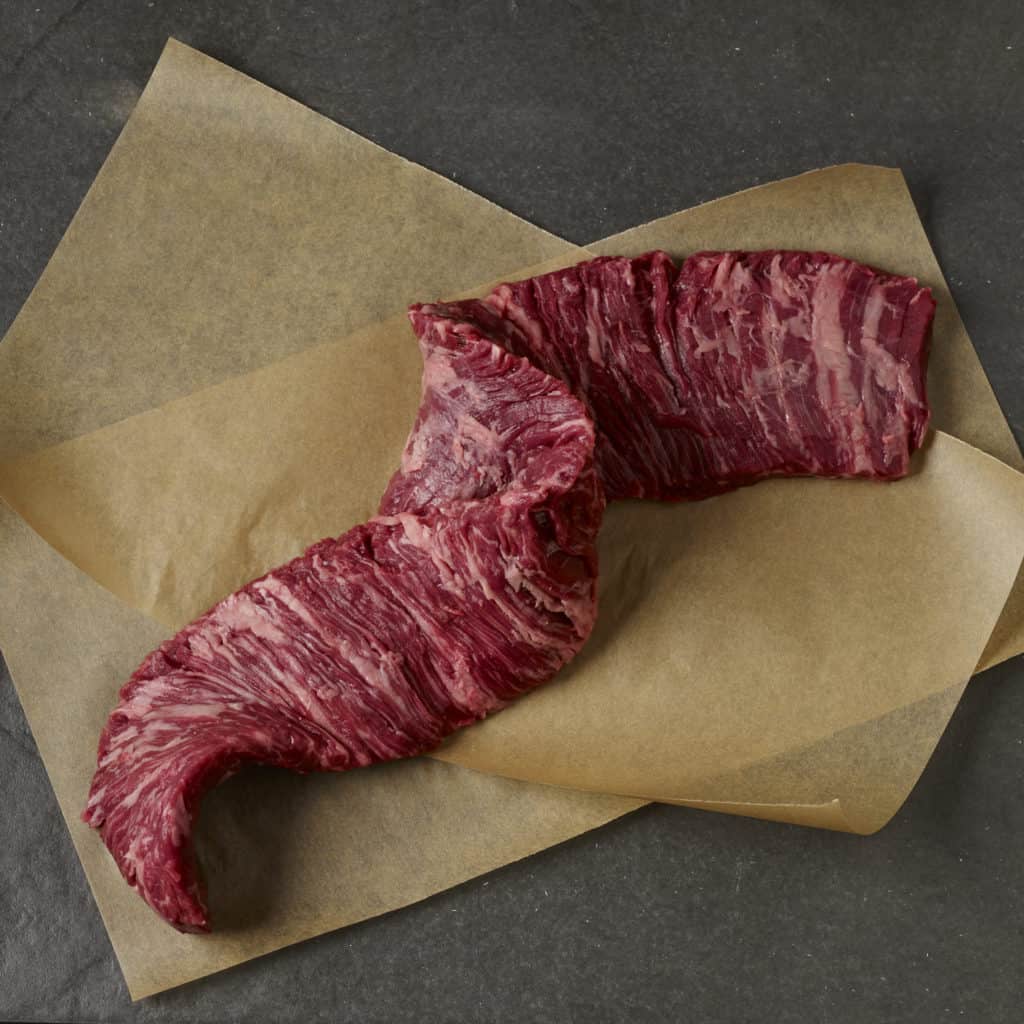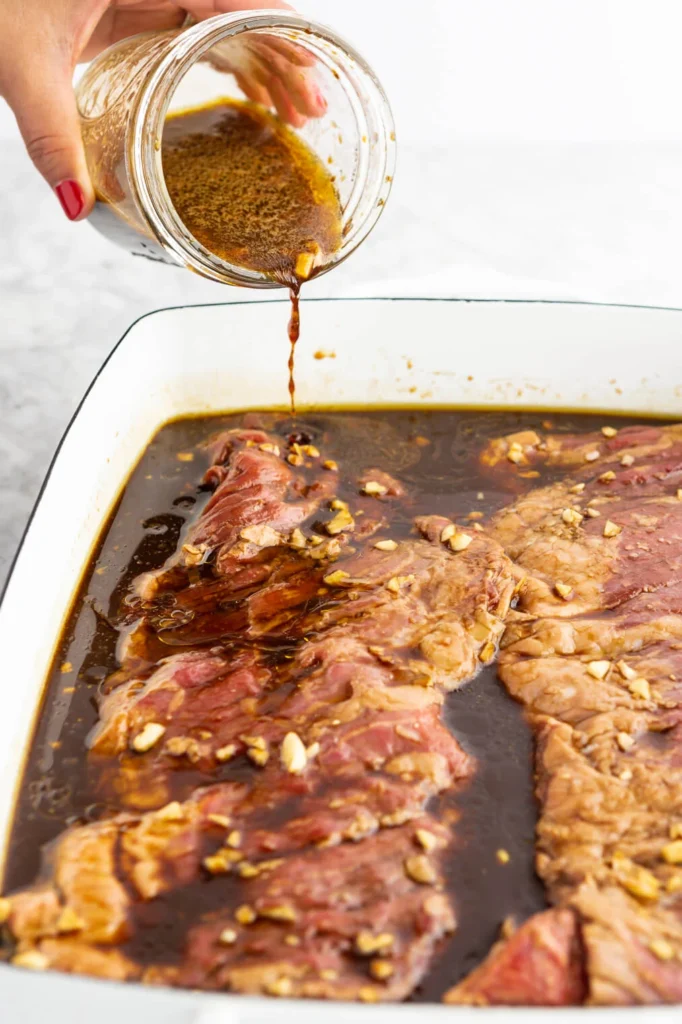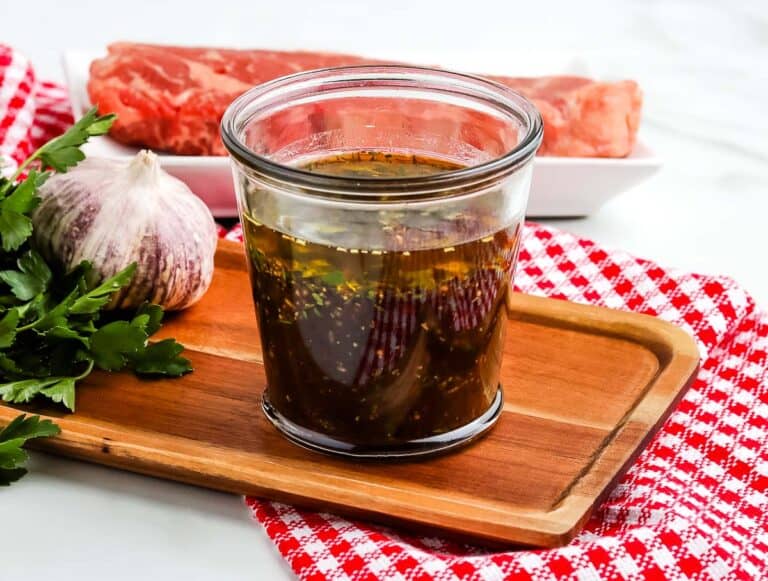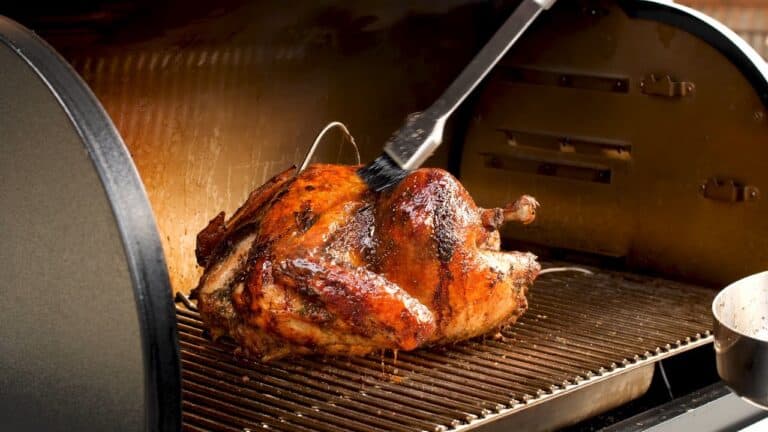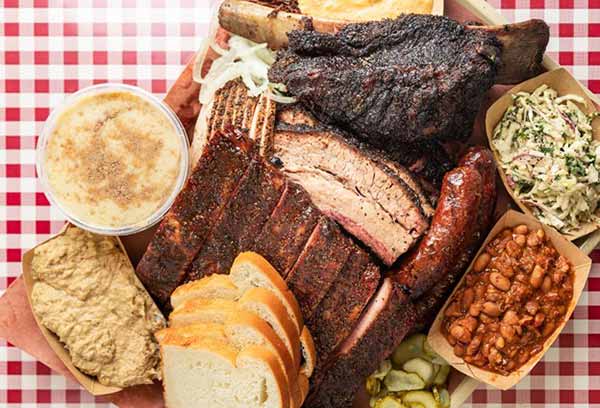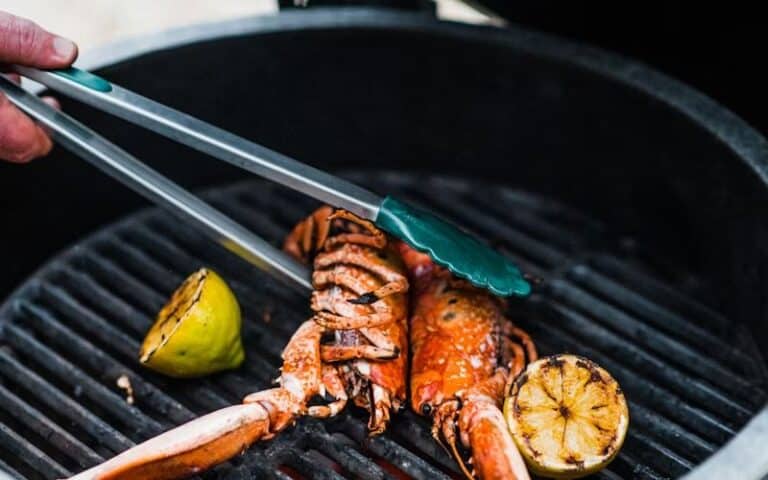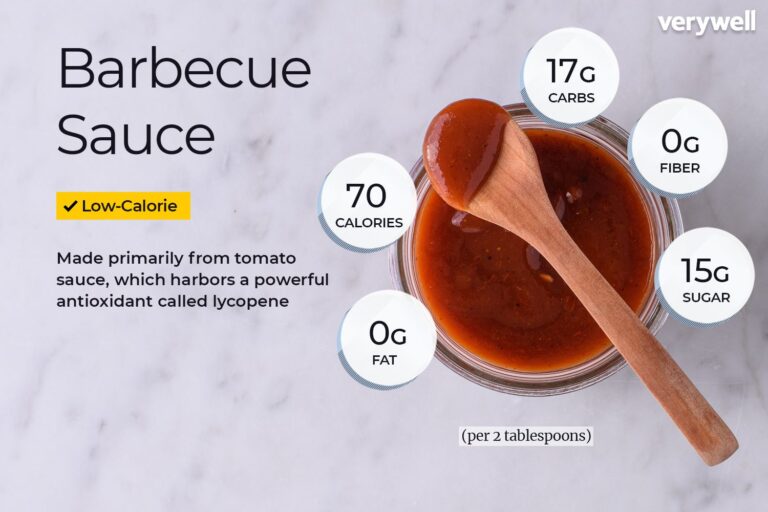The Ultimate Guide to BBQ Skirt Steak
Hey there, BBQ lovers! Ready to elevate your grilling game? Let’s talk about BBQ skirt steak, a cut of beef that’s a favorite among pitmasters and foodies alike. Whether you’re a seasoned pro or a weekend warrior with a grill, understanding skirt steak will take your BBQ skills to the next level.
So, grab your tongs, and let’s dive into the world of this delicious, flavorful cut.
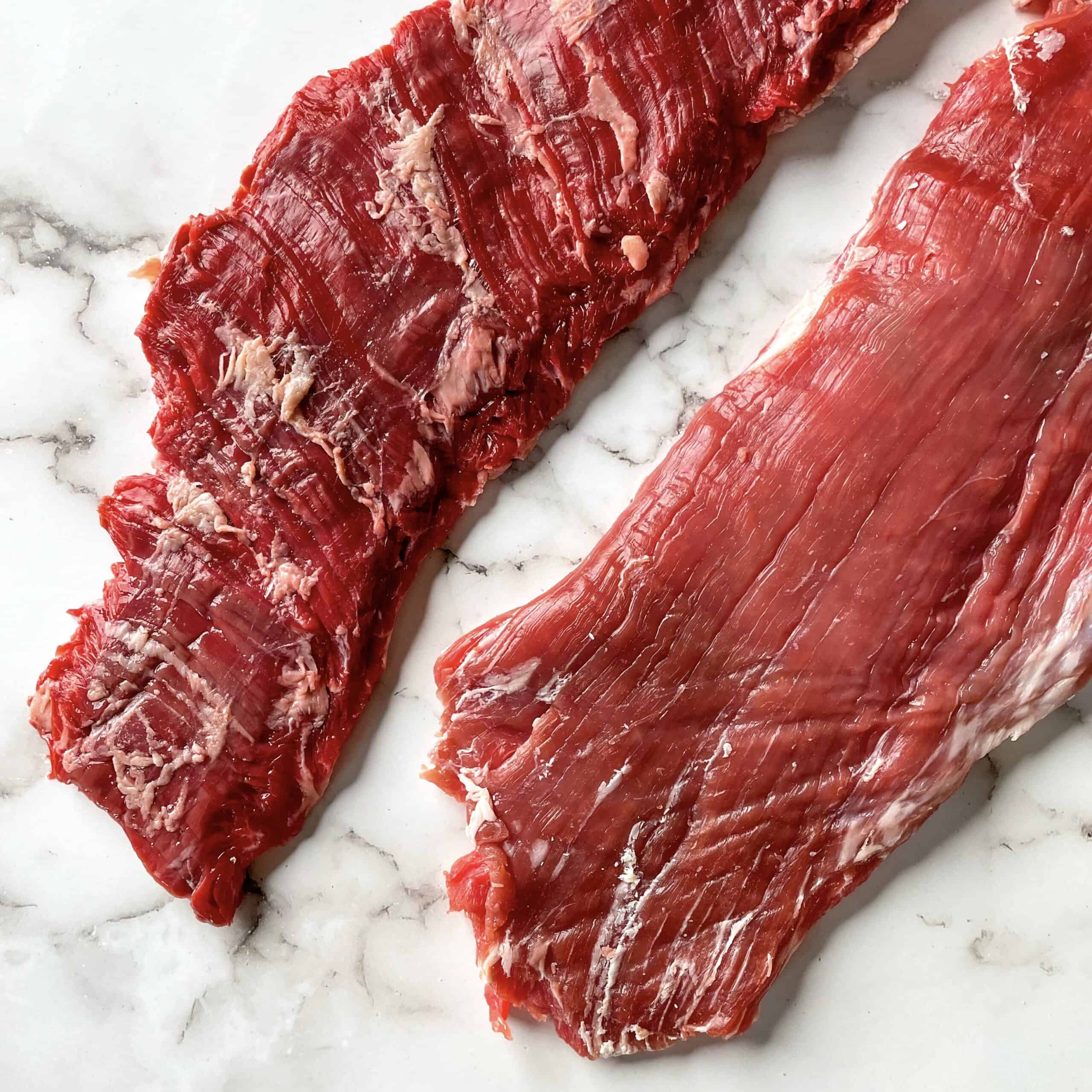
Introduction to Skirt Steak
First off, what exactly is skirt steak? This cut comes from the diaphragm muscle of the cow, and it’s known for its rich, beefy flavor and slightly chewy texture. While it might not be the most tender cut on the cow, it’s prized for its ability to soak up marinades and deliver an explosion of flavor with every bite. And the best part? It cooks up quickly, making it perfect for those impromptu backyard gatherings.
But not all skirt steaks are created equal. There are two types you’ll come across: inside and outside skirt steak. Each has its own unique characteristics and cooking needs, which we’ll break down for you. Plus, we’ll give you the lowdown on the nutritional benefits, so you can feel good about indulging in this mouthwatering cut.

What is Skirt Steak?
Skirt steak is a long, flat cut of beef from the diaphragm muscles of the cow. Known for its robust flavor and distinctive grain, skirt steak is a favorite among BBQ enthusiasts. It’s prized for its tenderness when properly cooked and sliced, making it ideal for grilling. This cut is particularly popular in Latin American cuisine, often used in fajitas and carne asada.
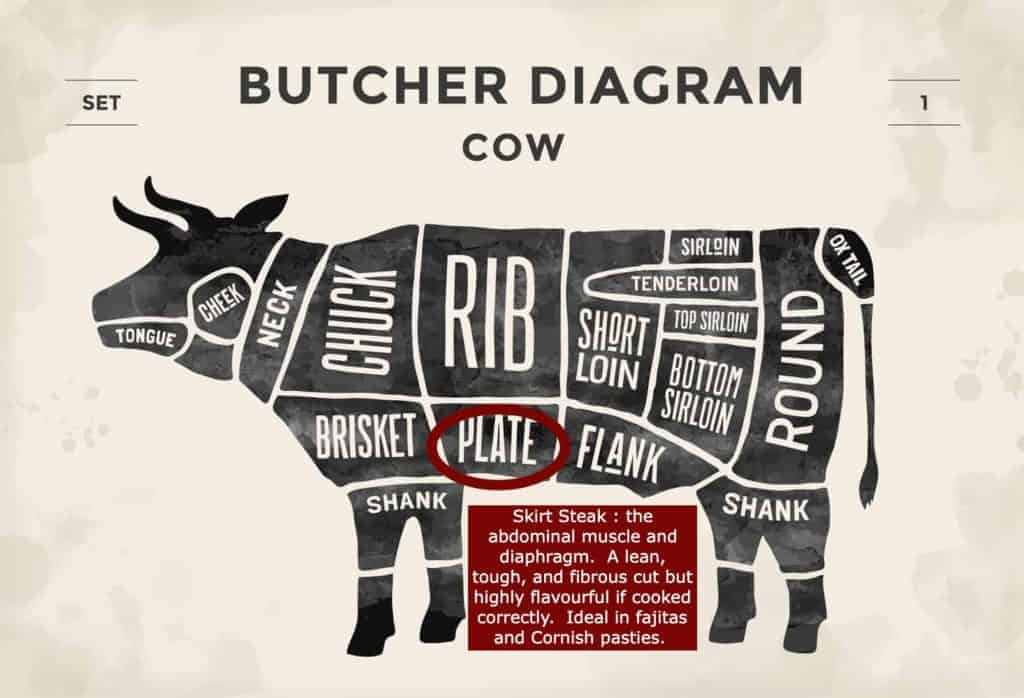
Types of Skirt Steak: Inside vs. Outside
Skirt steak comes in two types: inside and outside. Outside skirt steak is more desirable due to its superior tenderness and marbling, while inside skirt steak is a bit tougher but still flavorful when cooked correctly.
The outside skirt is longer and thinner, typically found in restaurants, whereas the inside skirt is more common in grocery stores. Understanding the difference helps in selecting the right cut for your BBQ and can influence your preparation and cooking methods.
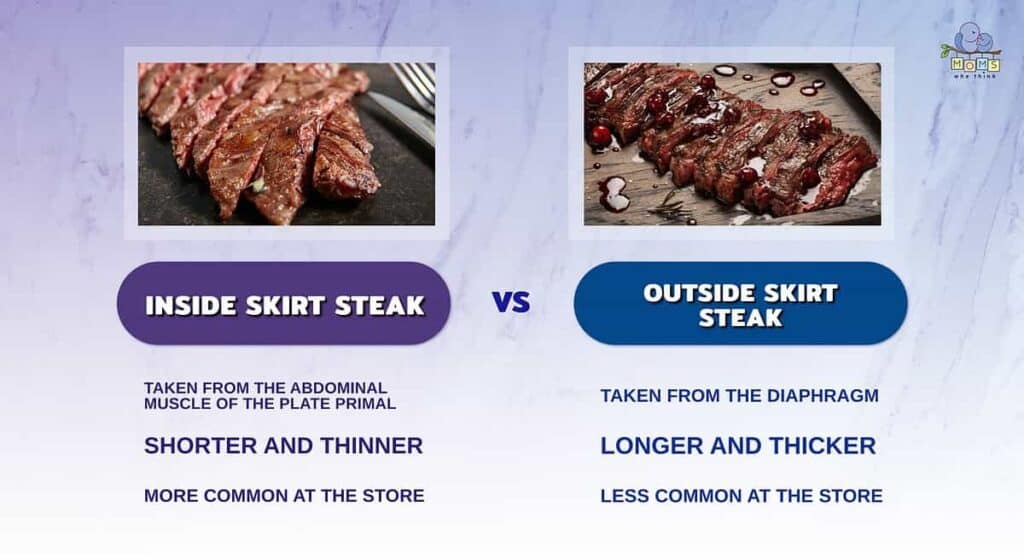
Nutritional Information
- Protein and Fat Balance: Relatively lean, providing a good balance of protein and fat.
- Iron: Essential for blood production and energy levels.
- Zinc: Supports immune function and metabolism.
- B Vitamins: Crucial for energy production and overall health.
- Omega-3 Fatty Acids: Beneficial for heart health.
- Calories: Flavorful cut without excessive calories.
- Protein Content: Excellent for muscle repair and growth, ideal for an active lifestyle.
Preparing Skirt Steak for BBQ
Selecting the Best Skirt Steak
When selecting skirt steak, look for cuts with a deep red color and visible marbling. The meat should be firm to the touch. Opt for outside skirt steak if available, as it tends to be more tender and flavorful. Avoid pieces that appear brown or gray, which may indicate they are not fresh. Checking for any unpleasant odors is also crucial; fresh skirt steak should have a clean, slightly meaty scent.
Marinating Skirt Steak
Marinating is essential for infusing flavor and tenderizing the meat. The acidity in marinades helps break down the muscle fibers, making the steak more tender and juicy. When marinating, ensure the steak is evenly coated and stored in a resealable plastic bag or covered dish in the refrigerator.
Basic Marinade Recipe
Ingredients:
- Olive oil
- Soy sauce
- Garlic (minced)
- Lime juice
Instructions:
- Combine olive oil, soy sauce, minced garlic, and lime juice in a bowl.
- Place the skirt steak in the marinade, ensuring it’s well-coated.
- Marinate for at least 30 minutes, preferably overnight for deeper flavor.
Flavor Profile: This basic marinade offers a balanced mix of acidity and umami, enhancing the steak’s natural taste without overpowering it.
Advanced Marinade Recipe
Ingredients:
- Balsamic vinegar
- Worcestershire sauce
- Dijon mustard
- Minced garlic
- Rosemary (fresh or dried)
- Honey
Instructions:
- Mix balsamic vinegar, Worcestershire sauce, Dijon mustard, minced garlic, rosemary, and honey in a bowl.
- Coat the skirt steak thoroughly with the marinade.
- Marinate for at least 30 minutes, ideally overnight for maximum flavor infusion.
Flavor Profile: This advanced marinade adds layers of flavor with a blend of tangy, savory, and sweet elements. The honey helps caramelize the steak on the grill, creating a delicious crust, while the rosemary and garlic infuse the meat with aromatic notes.
Applying Dry Rubs
Dry rubs are another way to add flavor to skirt steak without the need for a lengthy marinating process. They create a flavorful crust on the outside of the meat when grilled. Applying a dry rub evenly is key; ensure every inch of the steak is covered for a consistent flavor.
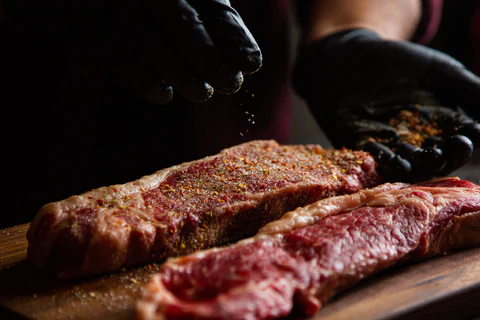
Basic Dry Rub Recipe
Ingredients:
- Salt
- Black pepper
- Paprika
- Garlic powder
- Onion powder
Instructions:
- Combine salt, black pepper, paprika, garlic powder, and onion powder in a bowl.
- Rub the mixture evenly over the skirt steak, ensuring a good coating.
- Let the steak sit with the rub for at least 15-20 minutes before cooking.
Flavor Profile: This simple blend enhances the natural flavor of the beef, adding a subtle kick and depth. It’s a versatile mix that works well with various cooking methods, not just grilling.
Customizing Your Dry Rub (Heat, Sweetness, Smokiness)
Customize your dry rub by adjusting the ingredients. Add cayenne pepper for heat, brown sugar for sweetness, or smoked paprika for a smoky flavor. Experimenting with different combinations can yield a rub that suits your taste perfectly. You can also incorporate herbs like thyme or rosemary for additional depth, or ground coffee for a unique, rich flavor.
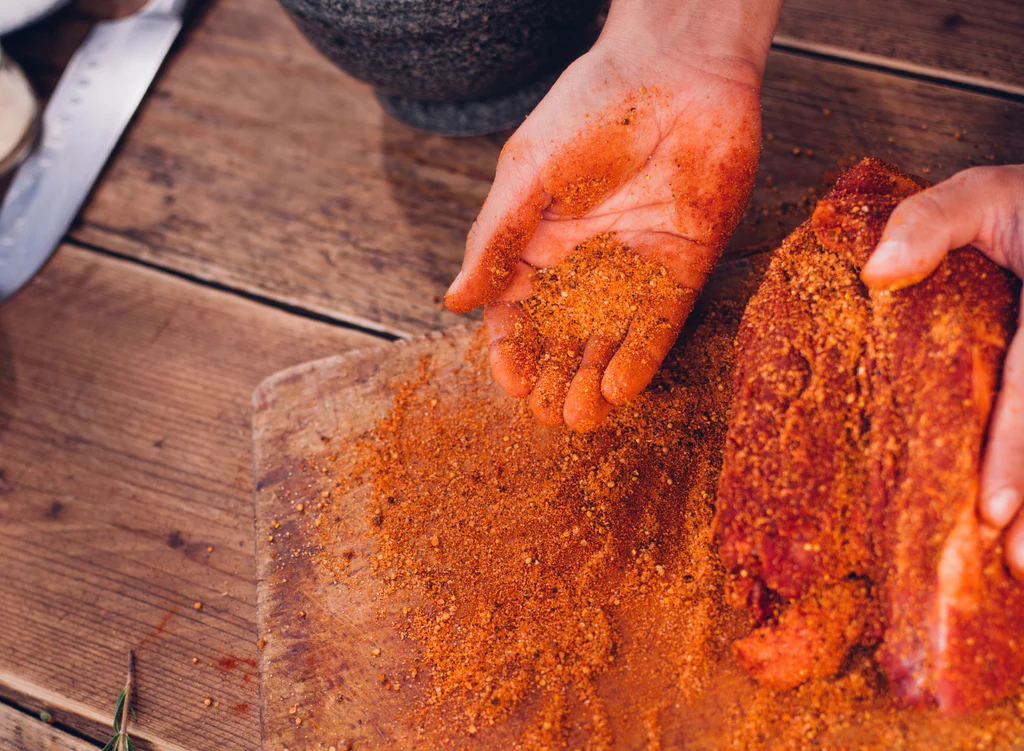
Grilling Techniques for Skirt Steak
Direct vs. Indirect Grilling
Direct grilling involves cooking the steak directly over the heat source, perfect for achieving a quick sear. Indirect grilling, on the other hand, cooks the steak more slowly and evenly by placing it away from the direct heat.
Both methods can be used depending on your desired level of doneness and flavor. For skirt steak, a combination of both methods often yields the best results: sear directly over the flame, then move to indirect heat to finish cooking.
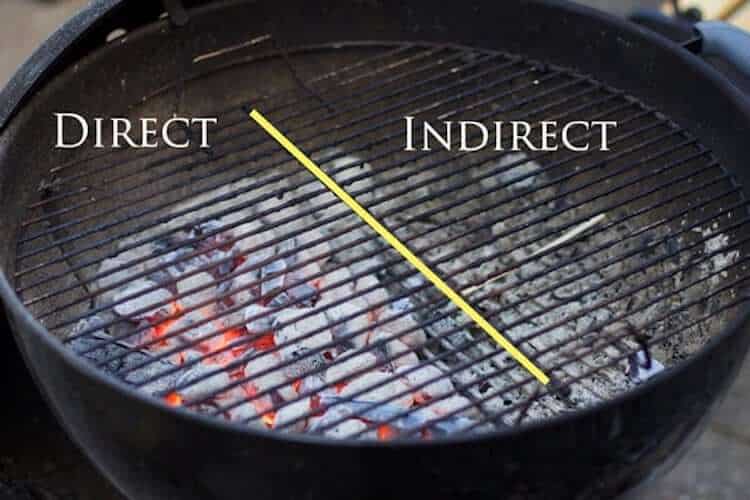
Ideal Grill Temperature
The ideal temperature for grilling skirt steak is high heat, around 450-500°F. This high temperature ensures a good sear on the outside while keeping the inside juicy and tender. Preheat your grill for at least 10-15 minutes to ensure it’s adequately hot. If using a charcoal grill, make sure the coals are evenly distributed for consistent heat.
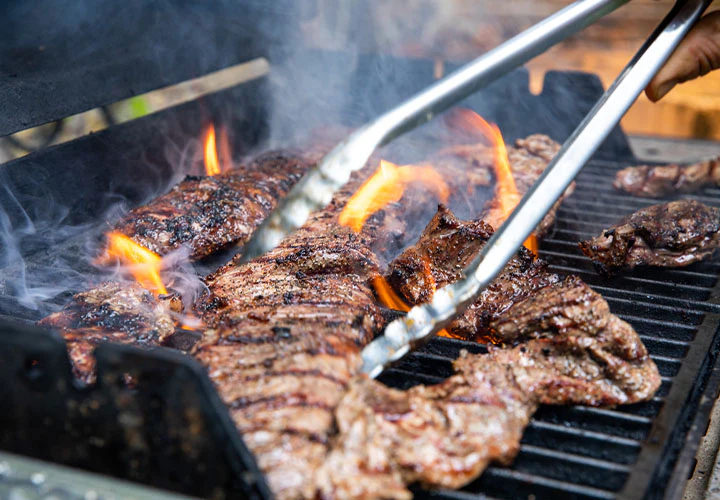
Using a Meat Thermometer
Using a meat thermometer helps achieve the perfect doneness. For medium-rare, aim for an internal temperature of 130-135°F. Medium should be around 140-145°F. Insert the thermometer into the thickest part of the steak for an accurate reading. Avoid piercing the meat multiple times, as this can cause juices to escape, resulting in a drier steak.
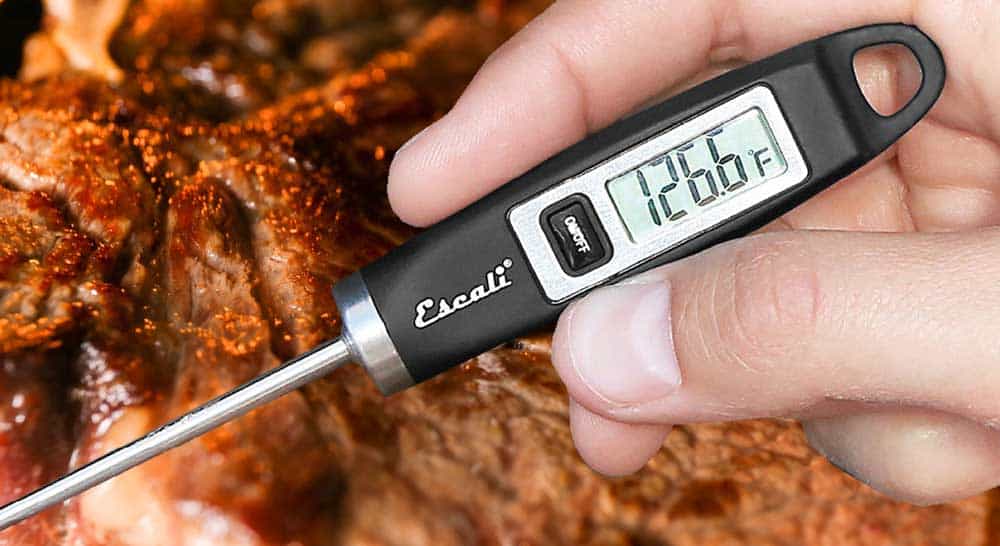
Common Grilling Mistakes to Avoid
- Ignoring Hot Spots: Be aware of your grill’s hot spots and move the steak accordingly for even cooking.
- Overcooking: Leads to a tough steak. Use a meat thermometer to ensure the correct doneness.
- Not Letting the Steak Rest: Always let the steak rest for 5-10 minutes after grilling to allow the juices to redistribute.
- Incorrect Slicing: Slice against the grain to ensure tenderness.
- Flipping Too Often: Flip the steak only once or twice to develop a proper crust.
- Using a Fork Instead of Tongs: Use tongs to handle the steak to avoid piercing the meat and losing moisture.
- Not Preheating the Grill: Ensure your grill is hot before adding the steak to achieve a good sear.
- Overcrowding the Grill: Give each steak enough space to cook evenly and develop a proper crust.
Serving BBQ Skirt Steak
Presentation Tips
Slicing skirt steak against the grain is crucial. This means cutting perpendicular to the direction of the muscle fibers. Doing so shortens the fibers and results in a more tender bite. Use a sharp knife and slice at a slight angle to achieve even, thin slices. This technique not only improves texture but also enhances the presentation.
For an appealing presentation, arrange the slices on a platter, fanning them out slightly. Garnish with fresh herbs such as cilantro or parsley. A drizzle of olive oil or a squeeze of fresh lemon juice can add a touch of brightness to the dish. Serving the steak on a wooden board or stone platter can add a rustic, visually appealing element to your presentation.

Pairing with Side Dishes
- Grilled Vegetables Grilled vegetables like bell peppers, zucchini, and asparagus complement skirt steak well. Their natural sweetness and charred flavor enhance the overall BBQ experience. Season the vegetables with olive oil, salt, and pepper before grilling to bring out their best flavors. You can also add a touch of balsamic glaze or sprinkle some feta cheese for extra complexity.
- Salads Fresh salads, such as a simple arugula and cherry tomato salad with a balsamic vinaigrette, provide a refreshing contrast to the rich flavor of the skirt steak. Incorporate ingredients like avocado, radishes, and citrus segments to add different textures and flavors. A crunchy coleslaw or a light cucumber salad can also be great side options, adding a refreshing crunch to the meal.
- Potatoes Potatoes, whether grilled, roasted, or mashed, are a classic accompaniment to skirt steak. They add a hearty component to the meal and can be seasoned to complement the flavors of the steak. Try grilling potato wedges with rosemary and garlic, making creamy mashed potatoes with a hint of horseradish, or roasting baby potatoes with thyme and olive oil.
- Best Sauces and Condiments Complement skirt steak with sauces and condiments like chimichurri, a tangy Argentinean sauce made with parsley, garlic, vinegar, and oil. Other options include a spicy BBQ sauce, a creamy horseradish sauce, or a classic steak sauce. Experiment with different flavors to find your favorite combination. A garlic aioli or a mustard-based sauce can also add a delicious twist to your BBQ skirt steak.
FAQs
Conclusion
BBQ skirt steak is a delicious and versatile dish that can be the star of any barbecue. By understanding the different types of skirt steak, mastering marinating and dry rub techniques, and employing proper grilling methods, you can ensure a perfectly cooked steak every time.
Serving it with complementary sides and sauces enhances the overall experience, making your BBQ memorable. Enjoy the rich, robust flavors of skirt steak at your next outdoor gathering, and impress your guests with your grilling prowess.
Disclosure: Our blog contains affiliate links to products. We may receive a commission for purchases made through these links. However, this does not impact our reviews and comparisons. We try our best to keep things fair and balanced, in order to help you make the best choice for you.

